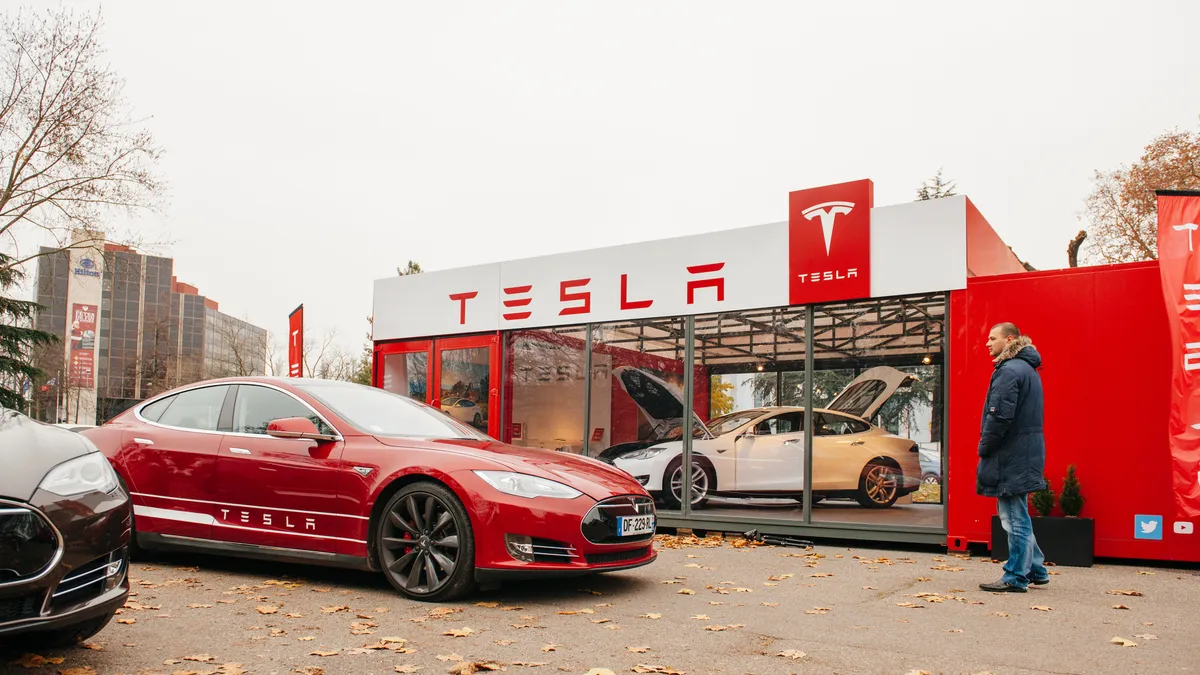Dive Brief:
- Tesla first encountered labor issues when it sought to resolve its Model X misalignment problems, tasking workers with last-minute efforts involving using rubber hammers on doors and other parts, The Wall Street Journal reported Tuesday.
- Now, with production on the new Model 3 falling well behind projected estimates, workers face unscheduled overtime and repetitive labor injuries that go unaddressed by the on-staff ergonomics team.
- The United Auto Workers (UAW) are attempting to organize the workers, and have contacted the National Labor Relations Board regarding alleged efforts by Tesla to discourage unionizing, which include dismissals.
Dive Insight:
Tesla missed production goals in the past, so no one was surprised when the company admitted it would miss Model 3 production goals, but now worker issues threaten to jeopardize the company's entire supply chain.
Tesla is an ambitious company, but its latest promises may not come to fruition if the company can't manage its supply chain. While it seemed that the resolution of early issues with suppliers made production both faster and easier, the company now seems mired in a new vicious cycle of low production, late delivery and recalls.
And then there's labor. Labor issues are rarely unsolvable, though they are prone to personality shortcomings, like intractability. Worker safety and union negotiations are usually easy to fix if workers' needs are taken seriously. In the case of Tesla, there's the ongoing issue of over-commitment, which is proving to be a weak point in the company's overall strategy.
Offering too much then pushing the staff to keep a CEO's promise, will, in fact, lead to "manufacturing hell" as Elon Musk described it. As Tesla struggles to implement its lofty vision of the future, employees suffer and may then protest unrealistic expectations. If management can't straighten out an unsustainable, quixotic company culture, then they're going to keep having problems.













